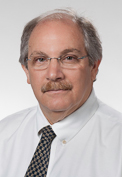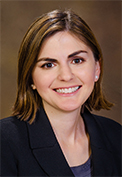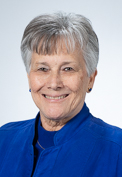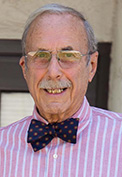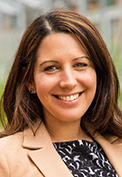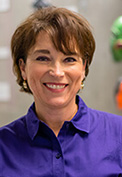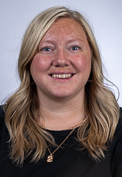The University of Arizona College of Medicine – Phoenix's Master of Arts in Bioethics curricula and courses were thoughtfully and collaboratively constructed by ethics experts from across the University of Arizona.
Program |
Director |
|---|---|
|
|
David Beyda, MDI am a retired pediatric intensivist who during the early years of practice in the ICU found myself facing difficult and complex ethical issues at the bedside. I needed growth in the field of medical ethics and was invited to be a visiting fellow at the Center for Clinical Bioethics at Georgetown under Dr. Edward Pellegrino, and a visiting scholar at the Rose Kennedy Institute of Ethics at Georgetown, under Dr. Robert Veatch. I found myself leaning toward the ethics of casuistry and then to the ethics of virtue where I am now. Engaging in medical ethics at the beside and in academics has given me a perspective of the meaning of personhood, dignity and more. |
Advisory |
Committee |
|
|
Leila Barraza, JD, MPHI am an associate professor of Community, Environment and Policy at the University of Arizona Mel and Enid Zuckerman College of Public Health and a Senior Consultant for the Western Region of the Network for Public Health Law. I also serve as the director of the Arizona Area Health Education Centers Program. My research interests include studying the impact of laws and regulations on population health, both nationally and globally. I instruct a public health law course for public health and law students. I received my JD — with a Certificate in Law, Science and Technology — from Arizona State University’s (ASU) Sandra Day O’Connor College of Law and my MPH from the UArizona College of Public Health. |
|
|
Jacque Chadwick, MDI practiced family medicine for over 30 years in the Scottsdale area and came across many ethical dilemmas with patients along the way. I felt ill-prepared, so I got my master’s in Bioethics at Trinity International University about 12 years ago. Starting in 1992, I became more involved in medical education and had always been involved in organized medicine. In both areas, I found that bioethical discussions were prevalent. I have been fortunate to share my experience and bioethics knowledge in public venues, medical schools, medical societies and the legislature. I’m encouraged that our current students are receiving such robust training in this area. |
|
|
Jennifer Hartmark-Hill, MDI am deeply appreciative for the opportunity to collaborate on this groundbreaking endeavor with such distinguished colleagues! I am the director of Narrative Medicine & Health Humanities and the director of the Faculty Development Fellowship at the UArizona College of Medicine – Phoenix. During my residency training at the Mayo Clinic, I had the privilege of participating in monthly bedside ethics rounds with our hospital’s bioethicist, Dr. Joseph Verheijde, which has been of tremendous value to my patient care perspectives as a physician and educator. I am especially interested in Narrative Ethics, and also excited to contribute to development of pedagogical strategies for instruction from the faculty development perspective. |
|
|
Laura Howard, PhDI am an associate professor of philosophy at the University of Arizona. I received my MA and PhD in philosophy with an emphasis in normative and applied ethics. Soon after coming to the UArizona in 2003, my area of specialty evolved into medical ethics. I decided early on to dedicate myself to teaching, and so I have developed several ethics courses for pre-med, nursing and pharmacy students, law students and professional health care providers. I teach courses in Health Care Ethics and Aging, as well as Social Justice for the graduate certificate program at Rogers Law. Rather than focusing on a narrow area of research, I try to stretch my scholarship over a range of topics in order to curate content for students interested in the most current pressing bioethical challenges — such as truth-telling and confidentiality, reproductive rights, justice in distribution of health care resources and end-of-life issues. |
|
|
Robert Kravetz, MDI am a retired gastroenterologist, trained a Yale with Howard Spiro, MD — a well know medical humanist — and practiced it with my patients for 35 years. Previously, I published a book Medical Humanism: Aphorisms from The Beside Teachings of Howard Spiro. Five thousand copies were distributed to Phoenix Physicians gratis. My interest in the history of medicine and collecting medical antiques dates back 50 years. Currently, I am completing an in-depth Medical Museum at the College of Medicine – Phoenix. As archivist for ten years at the American College of Gastroenterology, I facilitated an exhibit on Medical History each year at the national meetings. As director of the History of Medicine fourth year elective, I emphasize a lifelong interest in medical history. I have written two books on medical history and a third publication was released this past month for distribution. |
|
|
Karen Seat, PhDI am the head of the Department of Religious Studies and Classics and director of the School of International Languages, Literatures and Cultures (SILLC) in the College of Humanities. I have been working for a number of years to advance the College of Humanities’ engagement with Health Humanities at the University of Arizona. In 2014, I co-organized the Humanities, Medicine and Wellness Conference that brought together over 40 faculty members from a wide range of disciplines at the University of Arizona to present research related to health humanities. I have developed a Religious Studies for Health Professionals track in the Religious Studies undergraduate major, and I am currently working on developing a stand-alone major in Religious Studies for Health Professionals. In 2019-2020, I co-chaired the CFA/COH Health Humanities and the Arts Task Force convened by the deans of the College of Fine Arts and the College of Humanities. |
|
|
Tara Sklar, JD, MPHI am currently a Professor of Health Law at Arizona Law and Director of the Health Law and Policy Program. My interest in bioethics started early, as a patient, where I spent several years of my childhood regularly in and out of the hospital. This early exposure led to many things, including attempting to gain a better understanding of and advocating for the patient’s voice in both clinical care and research. I started my path by serving on numerous IRBs from a naturopathic university (Bastyr) to MD Anderson when I worked in their Clinical Ethics Services. I then moved into academia at the University of Melbourne, where I created an online Master's of Aging degree across eight colleges — where the central focus was on Ethics of Aging — and we approached it from the health sciences as well as economics, design (architecture), technology innovations (engineering), the arts and law. At Arizona Law, I oversee a new Graduate Certificate in Aging Law and Policy, along with three other online, multidisciplinary graduate programs in different areas of health law. My research primarily focuses on issues of privacy and consent among older adults in accessing health care and long-term care services. I serve on the Board for Arizona Bioethics Network and on the UArizona/Banner Health Bioethics Committee in Tucson. |
|
|
Cynthia Standley, PhDI am a professor of Physiology in the Department of Bioethics and Medical Humanism at the UArizona College of Medicine – Phoenix. I founded the Art in Medicine program at the college in 2014 and have partnered with the Phoenix Art Museum to provide arts education to medical students with the goal of improving patient care, as well as medical student wellness. With funding from the BHHS Legacy Foundation and the Arizona Commission on the Arts, a Creativity in Elder Care program was created in partnership with the Alzheimer’s Poetry Project with the goal of using the arts to enhance quality of life in older adults. |
 |
Molly Kurtz, MFAI am currently the academic officer assisting with the creation of the Bioethics program. With a background in educational theatre, working in the Department of Bioethics and Medical Humanism is a dream come true. Outside of the master’s program, I have been finding new ways to integrate improv into the medical curriculum. You’ll often find me saying "yes, and" to anything collaborative and creative. |
|
|
Amber SernaI am the instructional designer for the Department of Bioethics and Medical Humanism. I have an associate's degree in Science, a bachelor's degree in Business and I am finishing a master's degree in Education focusing on instructional design. I work with faculty to design courses that create an engaging, exciting and positive learning environment for our students. I am thrilled to be a part of the Bioethics program and UArizona College of Medicine – Phoenix. |
